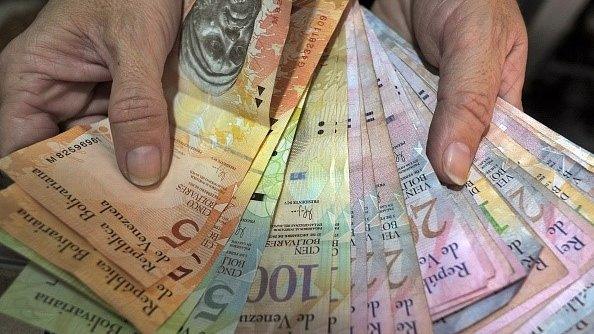Venezuela crisis: Opposition claims big win in push to recall Maduro
- Published
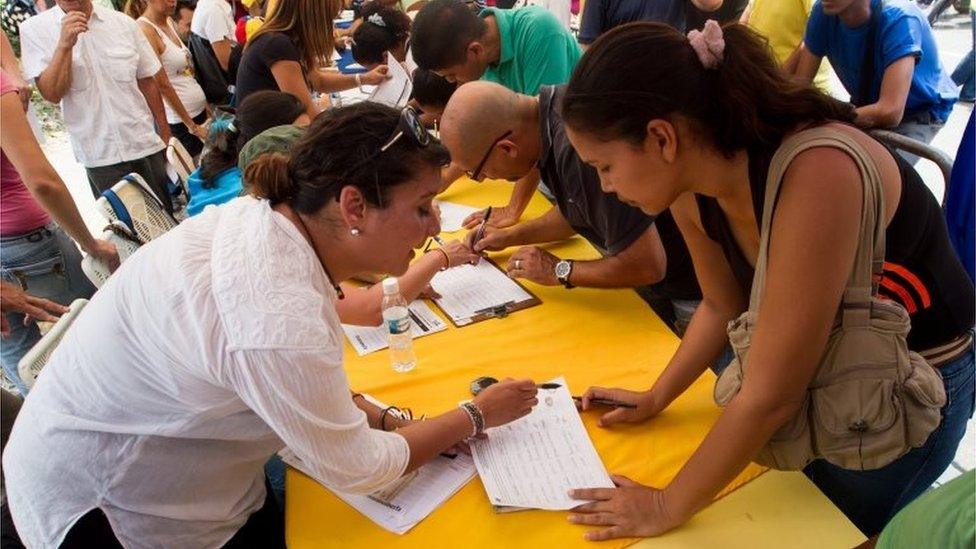
Thousands of people came out onto the streets to sign the petition for a recall referendum
The Venezuelan opposition has claimed that 600,000 people have signed a petition for a recall referendum on President Nicolas Maduro.
It is more than triple the number needed to start organizing the process.
Earlier, Mr Maduro dismissed the initiative, saying he would serve out his full mandate until 2019.
Many Venezuelans are furious because of a deep recession, food shortages and a power crisis that has cut supply to four hours a day in most cities.
Under Venezuela's constitution, presidents can be removed from office by means of a referendum once they have served half their term.
At this earliest stage, 1% of those on the electoral roll must sign the petition to start the process.
"It's an extremely high number given that the National Electoral Board only requires a little under 200,000" signatures, said Enrique Marquez, deputy speaker of the opposition-controlled parliament.
He said the signatures would be handed over to electoral officials next week.
'End anarchy'
Mr Maduro was sworn into office in April 2013 and is halfway through his six-year term.
Thousands of Venezuelans queued to sign the petition in the capital, Caracas.

Steps towards a recall referendum
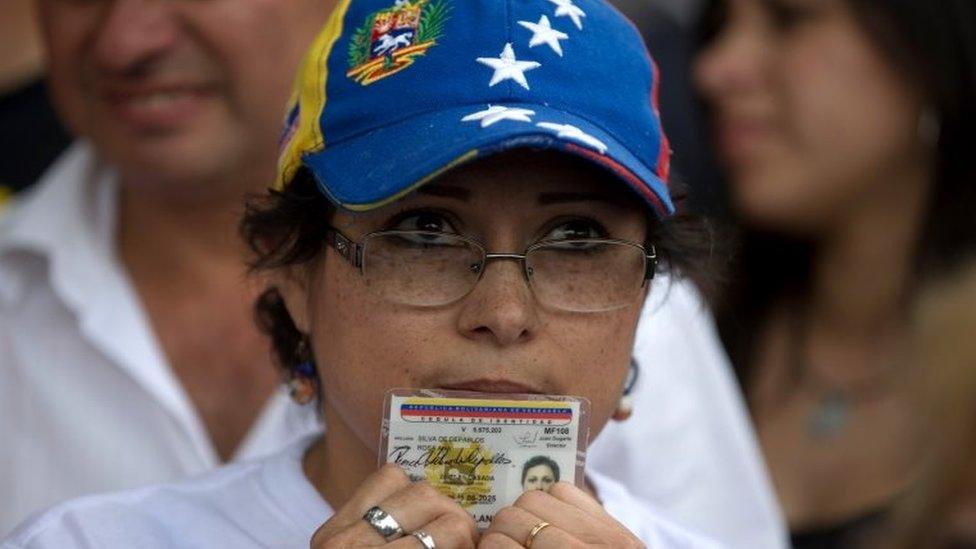
For the recall referendum to be successful almost 7.6 million people will have to vote to oust Mr Maduro
1. One per cent of voters on the electoral roll have to sign a petition within 30 days to kickstart the process
2, Twenty per cent of voters (almost four million) have to sign a second petition in order to trigger the referendum
3. For the referendum to be successful, an equal or greater number of voters than those who elected Mr Maduro would have to cast their vote in favour of the recall. Mr Maduro won the 2013 election with 7,587,579 votes

Miriam Leal, 54, told Agence France-Presse news agency that she was signing "to end this anarchy".
"We don't have medicine, work, education, and on top of that there is the electricity problem," she explained.
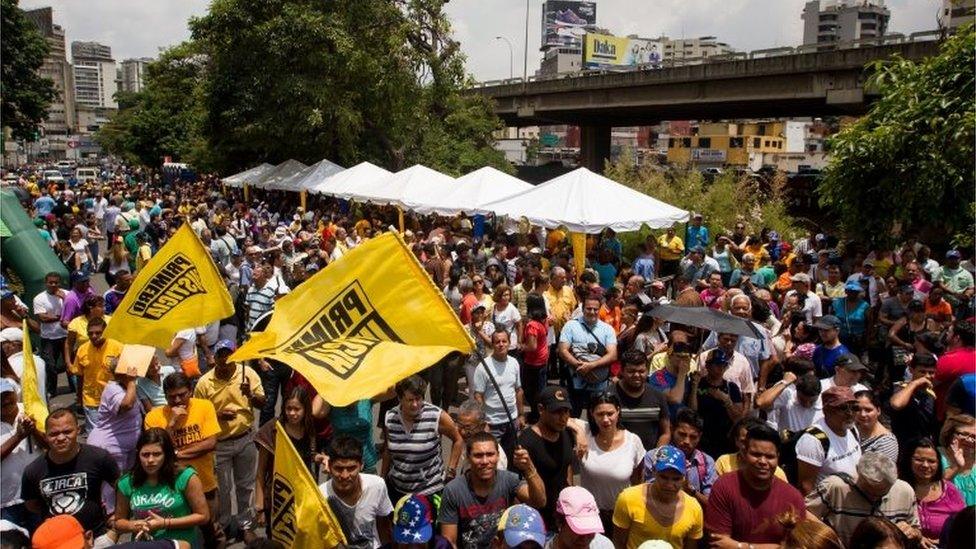
Long queues formed at some of the tables opposition parties set up to collect signatures
Like Ms Leal, many Venezuelans expressed their despair at the country's economic crisis which has seen inflation rise to the highest level in the world.
The oil-rich country relies almost exclusively on oil exports for its revenues and has been badly hit by the global fall in oil prices.
There are shortages of basic food items and medicines, and long queues form at supermarkets whenever some basic staple foods arrive.
A drought has also caused water levels at the country's main hydroelectric dam to drop dramatically.
Last week, President Maduro announced that power would be cut for four-hour periods daily except for in the capital, Caracas.
And on Tuesday, he said that public sector workers would only work two days a week to save power.
The government has blamed the power crisis on the El Nino weather phenomenon and the shortages on an "economic war" waged against it by the country's elite.
'Democratic exit'
But its critics say years of mismanagement by the socialist government have driven the economy into the ground and that only a change at the top can save the country.
Earlier this year, they announced they would be pursuing three strategies to try to oust Mr Maduro: a recall referendum, a constitutional amendment and popular protests.
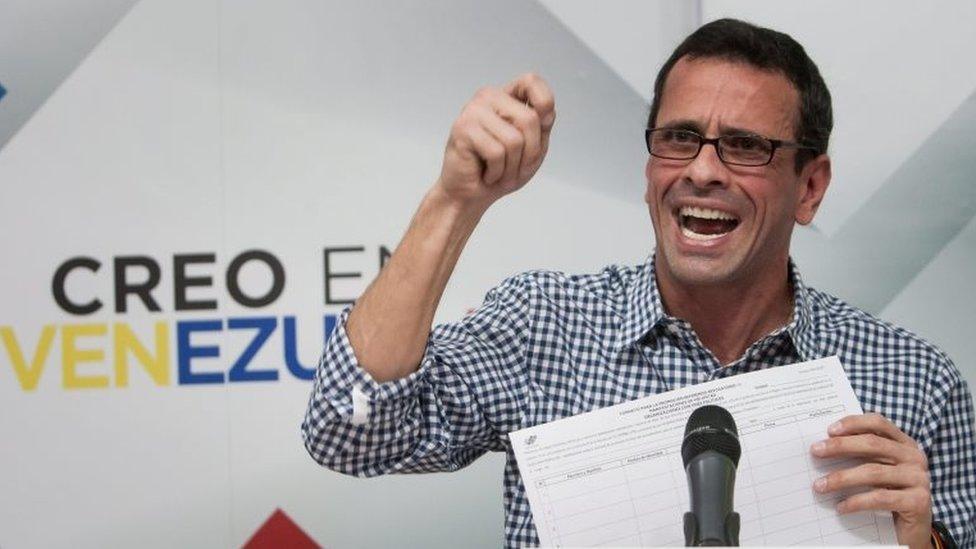
Opposition politician Henrique Capriles favours a recall referendum as his preferred means to oust Mr Maduro
Earlier this week, the Supreme Court said that a constitutional amendment to shorten the president's term in office while constitutional could not be applied for Mr Maduro's current term.
The opposition is therefore placing its hope for change in the recall referendum.
Opposition politicians are also trying to act swiftly as the timing of the referendum is key for what follows.
If the president is recalled during his first four years in office, new elections are called,
However, if he is recalled in the last two years of his term, the vice-president takes over.
It is in the opposition's interest to have new elections, rather than have socialist Vice-President Aristobulo Isturiz serve out Mr Maduro's term.
- Published25 April 2016
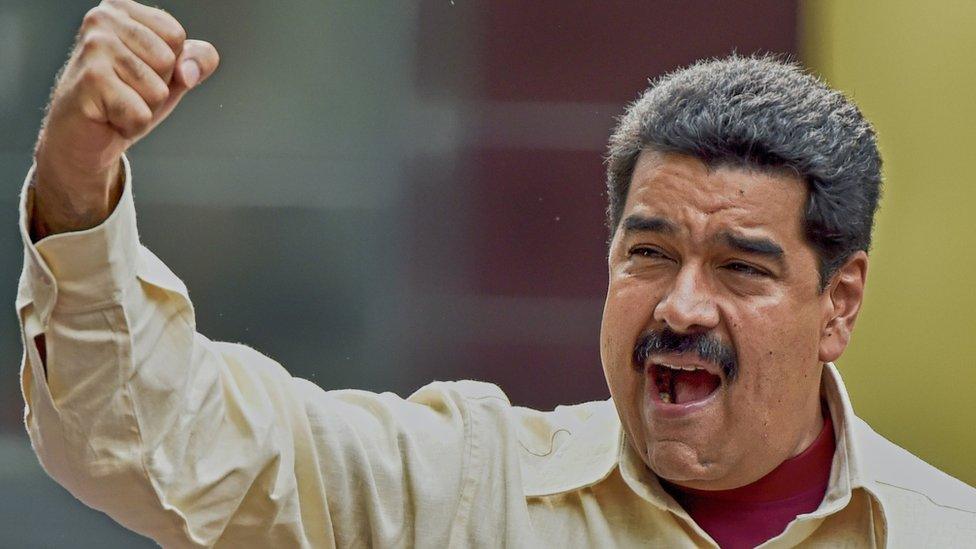
- Published8 March 2016
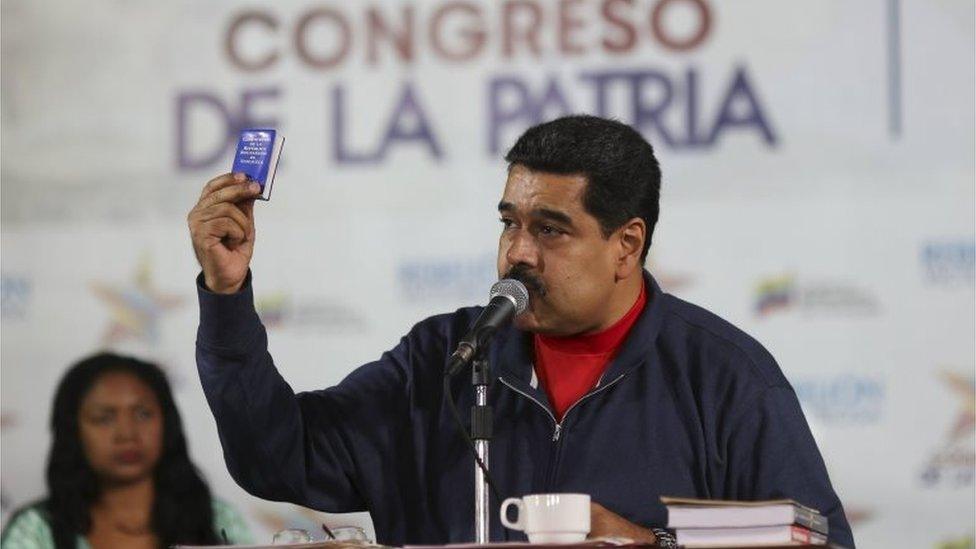
- Published7 December 2015
